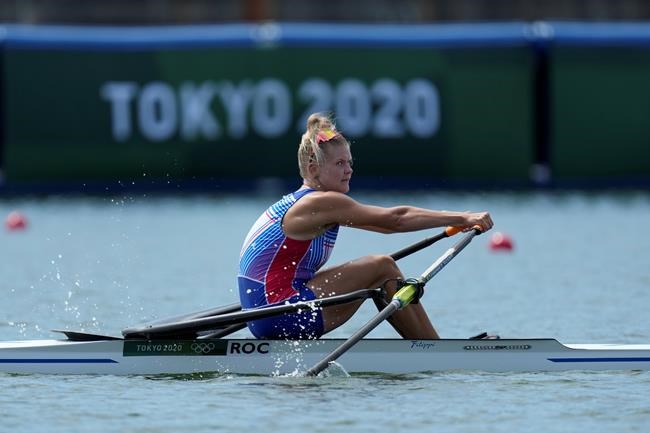Russians suspected of doping stopped from going to Olympics
Advertisement
Read this article for free:
or
Already have an account? Log in here »
To continue reading, please subscribe:
Monthly Digital Subscription
$0 for the first 4 weeks*
- Enjoy unlimited reading on winnipegfreepress.com
- Read the E-Edition, our digital replica newspaper
- Access News Break, our award-winning app
- Play interactive puzzles
*No charge for 4 weeks then price increases to the regular rate of $19.00 plus GST every four weeks. Offer available to new and qualified returning subscribers only. Cancel any time.
Monthly Digital Subscription
$4.75/week*
- Enjoy unlimited reading on winnipegfreepress.com
- Read the E-Edition, our digital replica newspaper
- Access News Break, our award-winning app
- Play interactive puzzles
*Billed as $19 plus GST every four weeks. Cancel any time.
To continue reading, please subscribe:
Add Free Press access to your Brandon Sun subscription for only an additional
$1 for the first 4 weeks*
*Your next subscription payment will increase by $1.00 and you will be charged $16.99 plus GST for four weeks. After four weeks, your payment will increase to $23.99 plus GST every four weeks.
Read unlimited articles for free today:
or
Already have an account? Log in here »
Hey there, time traveller!
This article was published 23/07/2021 (1582 days ago), so information in it may no longer be current.
TOKYO (AP) — Some Russian athletes were denied places on the country’s Olympic team of 335 athletes for the Tokyo Games because they are under suspicion of doping.
The World Anti-Doping Agency said Friday it intervened to stop several Russians from competing based on evidence from the Moscow testing laboratory that was shut down in 2015. The database and samples from the long-sealed lab were finally given in 2019 to WADA, which prepared and shared about 300 potential cases for governing bodies of Olympic sports.
“It was not particularly complicated,” WADA director general Olivier Niggli told The Associated Press. “There was not many but there was a handful, I would say, of athletes who would still potentially be at the Games which we would qualify as strong (database) cases.

“And none of them are here,” Niggli said. “They will not be competing.”
Fallout from the database case led to a ban on Russia’s national identity at the Tokyo Olympics and the 2022 Beijing Winter Games.
The 335 athletes accredited for Tokyo are officially competing for ROC, the acronym for the Russian Olympic Committee. The word “Russia” is banned from their uniforms.
Gold medalists from Russia will not hear their national anthem on the podium but instead a familiar piece of piano music composed by Tchaikovsky. A Russian Olympic flag will be raised, not the national flag of white, blue and red horizontal stripes.
Getting the database from Russia was supposed to bring closure to the state-backed doping scandal that tainted the 2014 Sochi Winter Games and prevented many athletes from going to the 2016 Rio de Janeiro Olympics.
WADA investigators found the database was manipulated while in the hands of Russian law enforcement. Information was altered and deleted, and false emails tried to incriminate lab officials who became whistleblowers.
A panel of three Court of Arbitration for Sport judges imposed a two-year slate of punishments in December. WADA originally requested four years.
WADA expressed disappointment with a CAS verdict at a news conference on Friday in Tokyo.
“We have made our arguments, we got a decision, it is what it is,” Niggli later told the AP.
One concession from CAS is letting the Russian uniform be in white, red and blue, the colors of the country’s national flag. Russians were not allowed to wear their colors at the past two track world championships, and WADA wanted neutral uniforms at the Olympics.
“CAS decided that this was going too far, this was unfair to a generation of athletes who had nothing to do with what happened in the past,” Niggli said. “The vast, vast majority of the delegation that is here from Russia is made up of athletes who were not competing back in 2012, 2013, 2014.”
___
More AP Olympics: https://apnews.com/hub/olympic-games and https://twitter.com/AP_Sports











